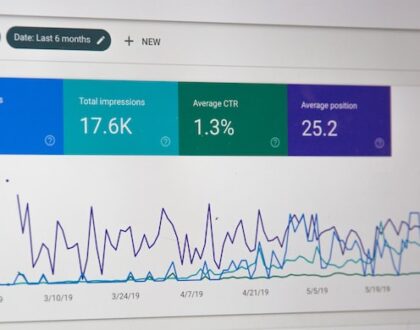Marketers Must Create Time for Time Management

by editor
I keep a screenshot on my desktop as a reminder. Every few months, I click on it to remind myself of a crucial lesson I failed to learn sooner. It begins: “If you don’t make time for your wellness, you will be forced to make time for your illness.”
This also is true for marketers and martech managers who must handle various campaigns, tight deadlines, and constantly expanding technologies. In the race to generate outcomes, it’s tempting to neglect the value of one’s personal well-being.
Overwork takes its toll
Twenty years ago, I was a management consultant who worked long hours and traveled weekly. During one period, I was onsite at customer headquarters in New Jersey, away from the workplace (and my family) from Monday to Thursday.
When I wasn’t traveling, my drive to work may take an hour or more because I resided in one of the country’s most congested cities. The stress and hours on the work resulted in poor eating and sleeping habits. I’d eat whenever and wherever I could, at whatever hour I happened to have a break.
Finding time to exercise was nearly hard due to the busy schedule. If I had the time, I would be too tired to do anything. As a result of this lifestyle, I gained 25 pounds but was completely unaware that it was happening. My wife, however, noticed and persuaded me to obtain a physical. When I went to my visit, the doctor told me I needed to lose weight, and I was upset by the statement.
My children jokingly refer to this stage in my life as my “Fat Dad” phase. After many years, I can only now see the reality. It wasn’t until my upcoming 40th birthday, when a friend proposed we celebrate by doing a triathlon, that I began to truly assess the state of my health.
The modern grind: Balancing family, job, and well-being.
I am sharing this because I know I am not alone.
By your early 30s, you’re usually married with young children and in the stage of your career where you might have settled into a job or profession. You’re working hard and determined to establish yourself. This newfound role of “family provider” frequently becomes the primary focus. In a sense, you give up your personal well-being for the sake of the family.
Why am I discussing this now, 20 years later? Because yesterday, I did something I would never have done during those stressful days.
The saying goes, “As you get older, you don’t need to set an alarm because your troubles will wake you.” I woke up thinking about a big presentation that was only a few hours away. After finishing my coffee, I left the kitchen, but instead of going straight to my office, I went for a run.
During the 45-minute tour around our neighborhood, I mentally arranged the presentation and came up with two new slides. After showering, I finished the presentation in ten minutes.
Twenty years ago, I would have commuted an hour to my office, sat at my computer for several hours, and tried to figure out how to finish the presentation. As I ran, I reflected on how my attitude to chores like this has changed in terms of efficiency and health impact.
Building a healthier routine, avoiding old behaviors.
COVID-19 had a silver lining in that it allowed employees to work remotely. According to the Association of Psychological Science, this period of time provided numerous mental and physical health benefits. Among them were lower stress levels due to not having to commute to work and the absence of toxic coworkers.
Another advantage was the ability to exert more control over your schedule. We cannot prevent Zoom calls, but we can take pauses throughout the day as needed. A chance to walk around the block, exercise at the gym, and possibly eat a healthy supper. According to the National Bureau of Economic Research, remote workers saved an average of 72 minutes per day, which they then allocated to work-related duties (40%), leisure time (34%), and childcare (11%).
With the return to the office, old habits may reemerge. Cortisol levels may rise due to the stress of the commute and the office environment. Office habits will resume, with a bite to eat whenever there is time and from whatever location is convenient. Feeling like there isn’t enough time to do what we need may revive the anxiety of previous years.
However, just because you are returning to an unpleasant setting does not imply that you must become a victim. Much has changed since businesses became more aware of the importance of mental wellness and the impact of working long hours on employee health. The most recent example is a major investment bank’s decision to limit junior employees’ hours.
Furthermore, a variety of apps and wearable technologies can assist battle the monotony and poor habits of the normal workweek. All of this is wonderful, but it ultimately comes down to you. Recognize when you are feeling overwhelmed.
There is always tomorrow.
Be mindful of striking a balance between stress and stress reduction. Take advantage of the tools available to you, and don’t be too proud to confess to yourself (or others) that you won’t be able to complete everything in one day.
One of the best bits of advise I received came in my late twenties. I was freshly married, working full-time, attending graduate school at night, and quite stressed out.
I asked a coworker, a single mother who supervised about 200 staff (another 200 kids, as she put it), how she did it. She responded: “I do as much as I can… and then there’s tomorrow.”
Recommended Posts

Can Attentiveness Actually Drive Campaign Success?
November 8, 2024

Maximizing Revenue Growth Through Sales and Marketing Alignment
October 11, 2024

What Technology Do You Think Will Win the Martech Race?
September 20, 2024
